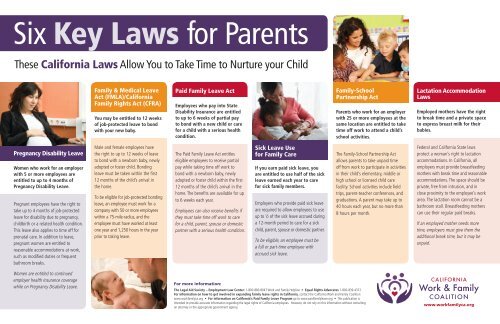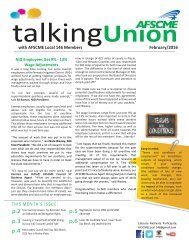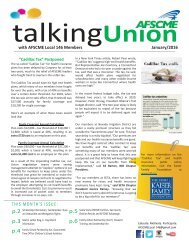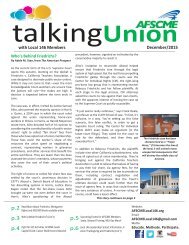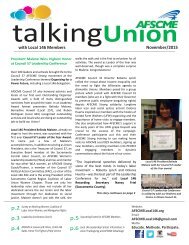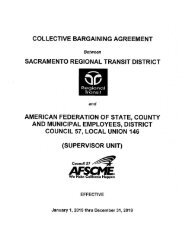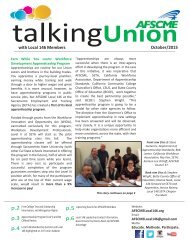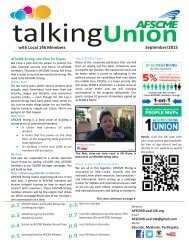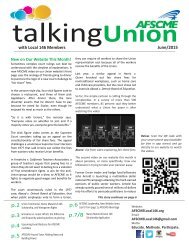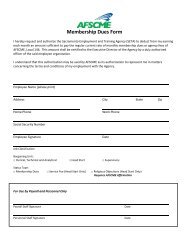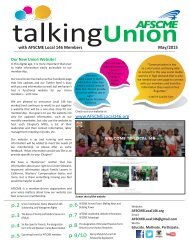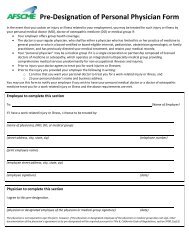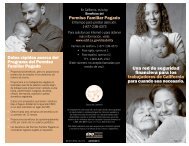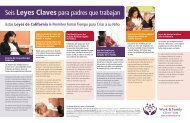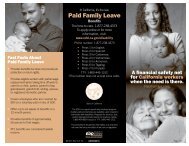Six Key Laws for Parents
- No tags were found...
You also want an ePaper? Increase the reach of your titles
YUMPU automatically turns print PDFs into web optimized ePapers that Google loves.
<strong>Six</strong> <strong>Key</strong> <strong>Laws</strong> <strong>for</strong> <strong>Parents</strong><br />
These Cali<strong>for</strong>nia <strong>Laws</strong> Allow You to Take Time to Nurture your Child<br />
Family & Medical Leave<br />
Act (FMLA)/Cali<strong>for</strong>nia<br />
Family Rights Act (CFRA)<br />
You may be entitled to 12 weeks<br />
of job-protected leave to bond<br />
with your new baby.<br />
Paid Family Leave Act<br />
Employees who pay into State<br />
Disability Insurance are entitled<br />
to up to 6 weeks of partial pay<br />
to bond with a new child or care<br />
<strong>for</strong> a child with a serious health<br />
condition.<br />
Family-School<br />
Partnership Act<br />
<strong>Parents</strong> who work <strong>for</strong> an employer<br />
with 25 or more employees at the<br />
same location are entitled to take<br />
time off work to attend a child’s<br />
school activities.<br />
Lactation Accommodation<br />
<strong>Laws</strong><br />
Employed mothers have the right<br />
to break time and a private space<br />
to express breast milk <strong>for</strong> their<br />
babies.<br />
Pregnancy Disability Leave<br />
Women who work <strong>for</strong> an employer<br />
with 5 or more employees are<br />
entitled to up to 4 months of<br />
Pregnancy Disability Leave.<br />
Pregnant employees have the right to<br />
take up to 4 months of job-protected<br />
leave <strong>for</strong> disability due to pregnancy,<br />
childbirth or a related health condition.<br />
This leave also applies to time off <strong>for</strong><br />
prenatal care. In addition to leave,<br />
pregnant women are entitled to<br />
reasonable accommodations at work,<br />
such as modified duties or frequent<br />
bathroom breaks.<br />
Male and female employees have<br />
the right to up to 12 weeks of leave<br />
to bond with a newborn baby, newly<br />
adopted or foster child. Bonding<br />
leave must be taken within the first<br />
12 months of the child’s arrival in<br />
the home.<br />
To be eligible <strong>for</strong> job-protected bonding<br />
leave, an employee must work <strong>for</strong> a<br />
company with 50 or more employees<br />
within a 75-mile-radius, and the<br />
employee must have worked at least<br />
one year and 1,250 hours in the year<br />
prior to taking leave.<br />
The Paid Family Leave Act entitles<br />
eligible employees to receive partial<br />
pay while taking time off work to<br />
bond with a newborn baby, newly<br />
adopted or foster child within the first<br />
12 months of the child’s arrival in the<br />
home. The benefits are available <strong>for</strong> up<br />
to 6 weeks each year.<br />
Employees can also receive benefits if<br />
they must take time off work to care<br />
<strong>for</strong> a child, parent, spouse or domestic<br />
partner with a serious health condition.<br />
Sick Leave Use<br />
<strong>for</strong> Family Care<br />
If you earn paid sick leave, you<br />
are entitled to use half of the sick<br />
leave earned each year to care<br />
<strong>for</strong> sick family members.<br />
Employers who provide paid sick leave<br />
are required to allow employees to use<br />
up to ½ of the sick leave accrued during<br />
a 12-month period to care <strong>for</strong> a sick<br />
child, parent, spouse or domestic partner.<br />
To be eligible, an employee must be<br />
a full or part-time employee with<br />
accrued sick leave.<br />
The Family-School Partnership Act<br />
allows parents to take unpaid time<br />
off from work to participate in activities<br />
in their child’s elementary, middle or<br />
high school or licensed child care<br />
facility. School activities include field<br />
trips, parent-teacher conferences, and<br />
graduations. A parent may take up to<br />
40 hours each year, but no more than<br />
8 hours per month.<br />
Federal and Cali<strong>for</strong>nia State laws<br />
protect a woman’s right to lactation<br />
accommodations. In Cali<strong>for</strong>nia, all<br />
employers must provide breastfeeding<br />
mothers with break time and reasonable<br />
accommodations. The space should be<br />
private, free from intrusion, and in<br />
close proximity to the employee’s work<br />
area. The lactation room cannot be a<br />
bathroom stall. Breastfeeding mothers<br />
can use their regular paid breaks.<br />
If an employed mother needs more<br />
time, employers must give them the<br />
additional break time, but it may be<br />
unpaid.<br />
Women are entitled to continued<br />
employer health insurance coverage<br />
while on Pregnancy Disability Leave.<br />
For more in<strong>for</strong>mation:<br />
The Legal Aid Society – Employment Law Center: 1-800-880-8047 Work and Family Helpline • Equal Rights Advocates 1-800-839-4372<br />
For in<strong>for</strong>mation on how to get involved in expanding family leave rights in Cali<strong>for</strong>nia, contact the Cali<strong>for</strong>nia Work and Family Coalition<br />
www.workfamilyca.org • For in<strong>for</strong>mation on Cali<strong>for</strong>nia’s Paid Family Leave Program go to www.paidfamilyleave.org • This publication is<br />
intended to provide accurate in<strong>for</strong>mation regarding the legal rights of Cali<strong>for</strong>nia employees. However, do not rely on this in<strong>for</strong>mation without consulting<br />
an attorney or the appropriate government agency.<br />
www.workfamilyca.org


